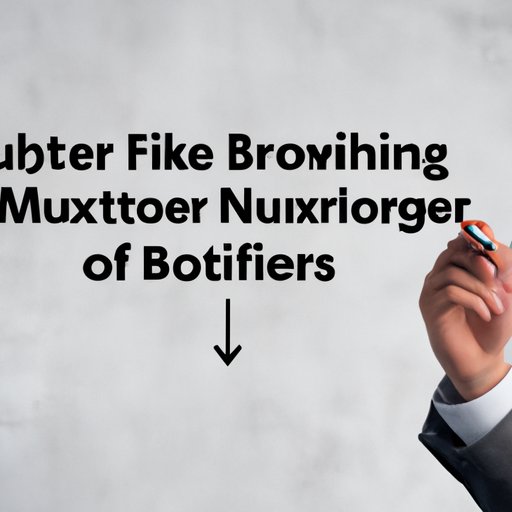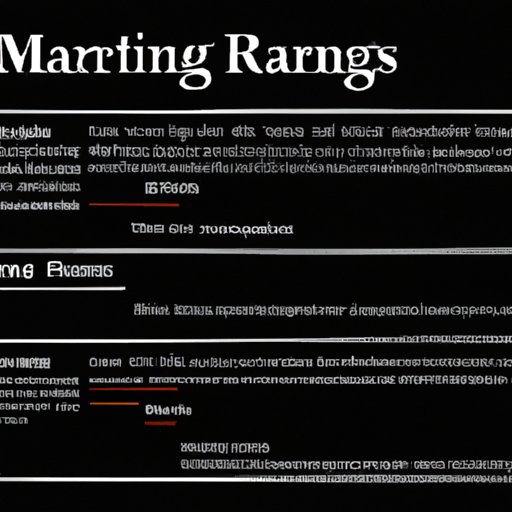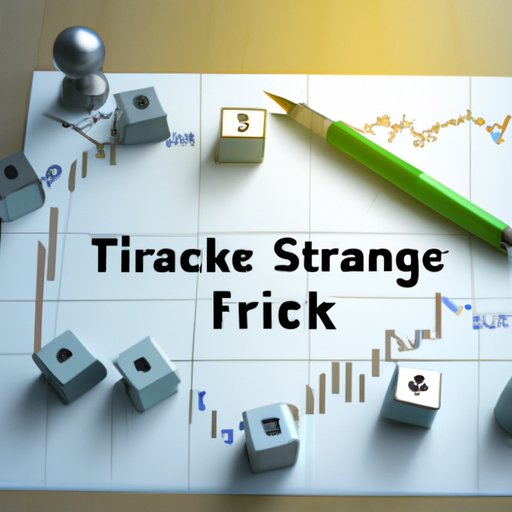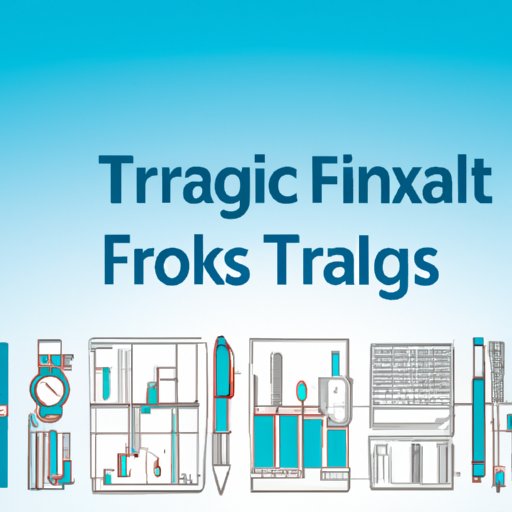Introduction
Futures trading is an investment strategy that involves buying and selling contracts for future delivery of a commodity or financial asset. For those looking to get started in futures trading, it can be intimidating to figure out where to begin. In this guide, we’ll explore different types of futures contracts, where to trade futures, key considerations when choosing a futures broker, an introduction to the margin requirements for futures trading, and strategies for successful futures trading.
Overview of Futures Trading: What It Is and How to Get Started
A futures contract is an agreement between two parties to buy or sell a certain asset at a predetermined price on a specific date in the future. The buyer of the contract agrees to purchase the asset at the specified price, while the seller agrees to deliver the asset at the predetermined price. Futures contracts are used by traders to speculate on the direction of the market, hedge against risk, and take advantage of price movements.
To get started in futures trading, you’ll need to open an account with a futures broker. This broker will provide you with access to the markets and allow you to place trades. You’ll also need to deposit a certain amount of money into your account as margin. Margin is a form of collateral that ensures that you will have enough funds to cover any losses you may incur during trading.
Exploring Different Types of Futures Contracts
There are a variety of different types of futures contracts available for trading. These include commodities such as agricultural products, energy, metals, and currencies. Financial futures such as stock index futures, interest rate futures, and currency futures are also available. Depending on the type of futures contract you’re trading, the underlying asset may be delivered at the end of the contract period or settled in cash.
Where to Trade Futures: Exchange-Traded Versus OTC Brokers
When it comes to trading futures, there are two main types of brokers: exchange-traded brokers and over-the-counter (OTC) brokers. Exchange-traded brokers are regulated by a governing body and offer access to futures exchanges, such as the Chicago Mercantile Exchange or the London International Financial Futures and Options Exchange. OTC brokers are not regulated by a governing body and typically offer access to more exotic markets, such as commodity options.
Exchange-Traded Futures
Exchange-traded futures offer several advantages for traders. These include liquidity, transparency, and price discovery. Liquidity refers to the ease with which a trader can enter or exit a position. With exchange-traded futures, traders can quickly and easily enter and exit positions due to the high level of liquidity provided by the exchange. Transparency refers to the ability for traders to view information about the market, such as order book data and open interest. Price discovery is the process of determining the fair market value of an asset through the interactions of buyers and sellers in the marketplace.
In addition to these advantages, exchange-traded futures are also subject to regulation. This means that traders can be assured that they are trading in a fair and orderly market. However, exchange-traded futures also have some disadvantages. For example, trading on an exchange can be costly due to commission fees and other charges.
OTC Brokers
OTC brokers offer access to a wide range of markets, including exotic markets that may not be available on exchanges. OTC brokers also offer more flexible leverage options, allowing traders to take larger positions than they would be able to on an exchange. In addition, OTC brokers often offer lower commissions and transaction costs than exchange-traded brokers.
However, OTC brokers are not subject to the same regulations as exchange-traded brokers, so traders may not be guaranteed a fair and orderly market. Furthermore, OTC brokers may be less transparent than exchange-traded brokers, making it difficult for traders to access important market information. Additionally, OTC brokers may not offer the same level of customer service as exchange-traded brokers.

Key Considerations When Choosing a Futures Broker
When selecting a futures broker, there are several key factors to consider. First, it’s important to look at the reputation of the broker. Look for reviews from other traders and check to see if the broker is registered with a regulatory body. Additionally, make sure to compare the commission fees and other charges associated with trading on the broker’s platform.
It’s also important to consider the trading platforms offered by the broker. Make sure the platform is user-friendly and offers the features you need for successful trading. Additionally, consider the leverage options offered by the broker. Finally, make sure to check the customer service offered by the broker. You want to be sure that you can get help quickly if you run into any issues.

An Introduction to the Margin Requirements for Futures Trading
When trading futures, it’s important to understand the margin requirements. Margin is a form of collateral that ensures you will have enough funds to cover any losses you may incur during trading. There are two types of margin: initial margin and maintenance margin. Initial margin is the amount of money you must deposit in order to open a position. Maintenance margin is the minimum amount of equity you must maintain in your account in order to keep your position open.
If the equity in your account falls below the maintenance margin requirement, you will receive a margin call. A margin call requires you to add additional funds to your account in order to bring the equity back up to the required level. If you fail to meet the margin call, your position may be liquidated, resulting in losses.

Strategies for Successful Futures Trading
In order to be successful in futures trading, it’s important to establish an investment plan. This should include a detailed analysis of the market, as well as a set of rules for entering and exiting trades. Additionally, it’s important to set stop losses in order to limit potential losses. Stop losses are orders placed with a broker to close a position if it reaches a certain price.
It’s also important to perform both technical and fundamental analysis in order to identify trading opportunities. Technical analysis involves using charting tools to analyze past price movements in order to predict future price movements. Fundamental analysis involves analyzing economic and political factors that may affect the price of a particular asset.
Conclusion
Futures trading can be a lucrative way to invest, but it’s important to understand the risks involved. Before getting started, it’s important to research different types of futures contracts, where to trade futures, key considerations when choosing a futures broker, an introduction to the margin requirements for futures trading, and strategies for successful futures trading. By taking the time to understand the basics of futures trading, you can increase your chances of success.
(Note: Is this article not meeting your expectations? Do you have knowledge or insights to share? Unlock new opportunities and expand your reach by joining our authors team. Click Registration to join us and share your expertise with our readers.)
